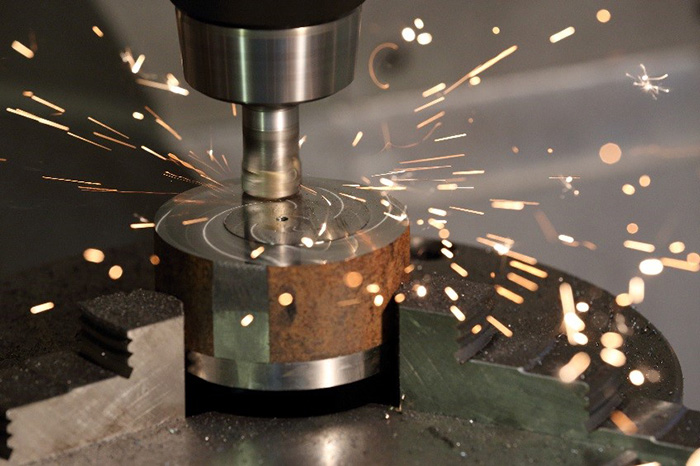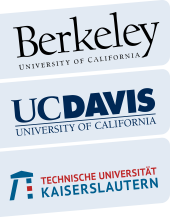

RESEARCH PROGRAM
Title: NSF/DFG Collaboration to Understand the Prime Factors Driving Distortion in Milled Aluminum Workpieces
Name: Dipl.-Ing. Daniel Weber
E-Mail: daniel.weber@mv.uni-kl.de
Phone: 0631 – 205 - 5911
Project description:
Starting situation
Thin walled monolithic components are applied in the aerospace and manufacturing industries because of their high overall-strength-to-weight ratio. The distortion of these components is a common problem and leads to high cost due to reworking, remanufacturing or rejecting the components.
It is known that the main reason for the distortion is due to stresses which occur during the machining process, so called machining residual stresses, and the ones which are already in the material because of former processes e.g. heat treatments – bulk residual stresses.
Approach
The project is divided in four work-packages, which are conducted in cooperation between UC Davis and TU Kaiserslautern. In the first two steps the bulk and the machining residual stresses are investigated with the help of FEM simulations and experiments. Dry milling experiments are carried out and the machining residual stress in the material is measured by the XRD method. A parameter investigation, e.g. variation of the cutting parameters, shows the influence on the machining residual stress. Based on that data FEM simulations are build and the output is compared to experimental results. After that the understanding of the superposition of bulk and machining residual stress takes place and a prediction respectively compensation techniques for distortion are investigated.
Expected Results
Gaining advanced knowledge in residual stresses, especially the combination of bulk and machining residual stress, in thin walled monolithic materials is expected. This will lead to compensation techniques for minimizing the distortion.
Besides that the relationship of American NSF and German DFG in the field of manufacturing will be enhanced.


